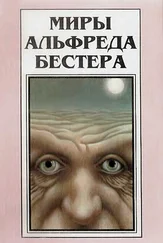And Ben Graffis breathed a great breath and looked them not in the eye and said to them, Were it not a better thing for Poopy Panda to coax and urge no more, but to command as he were a god?
And the animators and directors and cameramen and writers were sore amazed and they said one to the other, This is the bleeding end, and the bankers which sit in New York have flipped their wigs. And one which was an old animator said to Ben Graffis, trembling, O chief, never would I have stolen for thee Poopy Panda from the Winnie the Pooh illustrations back in twenty-nine had I known this was in the cards, and Ben Graffis fired him.
Whereupon another which was a director said to Ben Graffis, O chief, the thing can be done with a two-week buildup, and Ben Graffis put his hands over his face and said, Let it be so.
And it came to pass that on the Friday after the two-week buildup, in the closing quarter-hour of the Poopy Panda Pals, there was a special film combining live and animated action as they were one.
And in the special film did Poopy Panda appear enhaloed, and the talented kid performers did do him worship, and Otto Clodd did trip over his feet whilst kneeling, and Jackie Whipple did urge in manly and sincere wise that all the Poopy Panda Pals out there in television-land do likewise, and the enhaloed Poopy Panda did say in his lovable growly voice, Poop-poop-poopy.
And adoration ascended from thirty-seven million souls.
And it came to pass that Ben Graffis went into his office with his animators and cameramen and directors and writers after the show and said to them, It was definitely a TV first, and he did go to the bar.
Whereupon one which was a director looked at Who sate behind the desk that was the desk of Ben Graffis and he said to Ben Graffis, O chief, it is a great gag but how did the special effects boys manage the halo?
And Ben Graffis was sore amazed at Who sate behind his desk and he and they all did crowd about and make as if to poke Him, whereupon He in His lovable growly voice did say, Poop-poop-poopy, and they were not.
And certain unclean ones which had gone before turned unbelieving from their monitors and said, Holy Gee, this is awful. And one which was an operator of marionettes turned to his manager and said, Pal, if Graffis gets this off the ground we're dead. Whereat a great and far-off voice was heard, saying, Poop-poop-poopy, and it was even so; and the days of Poopy Panda were long in the land.
Filtered for error,
Jan. 18th 36 P.P.
Synod on Filtration & Infiltration O. Clodd, P.P.P. J. Whipple, P.P.P.
ALFRED BESTER
Disappearing Act
Alfred Bester occupies a chair of honor on Holiday's writing staff. He has to his credit countless radio scripts and a bright and astonishing novel of today's television world called Who He? Almost the only first-rate television play on a science fiction theme—"Murder and the Android"—came from his brain, and so did the remarkable, the trail-blazing, the award-winning—in a word, the unique The Demolished Man. He does everything, you see. And he has a touch of his own. When it comes to a time-travel story, most science fiction writers may content themselves with traveling to the future, or to the past, or perhaps sidewise to the parallel worlds of "if" that lie around us. Not Bester. He goes in a direction discovered by himself; and thus it is that he takes us along on this strange—
Disappearing Act
This one wasn’t the last war or a war to end war. They called it the War for the American Dream. General Carpenter struck that note and sounded it constantly. There are fighting generals (vital to an army), political generals (vital to an administration), and public relations generals (vital to a war). General Carpenter was a master of public relations. Forthright and FourSquare, he had ideals as high and as understandable as the mottoes on money. In the mind of America he was the army, the administration, the nation’s shield and sword and stout right arm. His ideal was the American Dream.
“We are not fighting for money, for power, or for world domination,” General Carpenter announced at the Press Association dinner.
“We are fighting solely for the American Dream,” he said to the 137th Congress.
“Our aim is not aggression or the reduction of nations to slavery,” he said at the West Point Annual Officer’s Dinner.
“We are fighting for the meaning of civilization,” he told the San Francisco Pioneers’ Club.
“We are struggling for the ideal of civilization; for culture, for poetry, for the Only Things Worth Preserving,” he said at the Chicago Wheat Pit Festival.
“This is a war for survival,” he said. “We are not fighting for ourselves, but for our dreams; for the Better Things in Life which must not disappear from the face of the earth.”
America fought. General Carpenter asked for one hundred million men. The army was given one hundred million men. General Carpenter asked for ten thousand H-Bombs. Ten thousand H-Bombs were delivered and dropped. The enemy also dropped ten thousand H-Bombs and destroyed most of America’s cities.
“We must dig in against the hordes of barbarism,” General Carpenter said. “Give me a thousand engineers.”
One thousand engineers were forthcoming, and a hundred cities were dug and hollowed out beneath the rubble.
“Give me five hundred sanitation experts, three hundred traffic managers, two hundred air-conditioning experts, one hundred city managers, one thousand communication chiefs, seven hundred personnel experts. . .“
The list of General Carpenter’s demand for technical experts was endless. America did not know how to supply them.
“We must become a nation of experts,” General Carpenter informed the National Association of American Universities. “Every man and woman must be a specific tool for a specific job, hardened and sharpened by your training and education to win the fight for the American Dream.”
“Our Dream,” General Carpenter said at the Wall Street Bond Drive Breakfast, “is at one with the gentle Greeks of Athens, with the noble Romans of . . . er Rome. It is a dream of the Better Things in Life. Of music and art and poetry and culture. Money is only a weapon to be used in the fight for this dream. Ambition is only a ladder to climb to this dream. Ability is only a tool to shape this dream.”
Wall Street applauded. General Carpenter asked for one hundred and fifty billion dollars, fifteen hundred ambitious dollar-a-year men, three thousand able experts in mineralogy, petrology, mass production, chemical warfare and air-traffic time study. They were delivered. The country was in high gear. General Carpenter had only to press a button and an expert would be delivered.
In March of A.D. 2112 the war came to a climax and the American Dream was resolved, not on any one of the seven fronts where millions of men were locked in bitter combat, not in any of the staff headquarters or any of the capitals of the warring nations, not in any of the production centers spewing forth arms and supplies, but in Ward T of the United States Army Hospital buried three hundred feet below what had once been St. Albans, New York.
Ward T was something of a mystery at St. Albans. Like any army hospital, St. Albans was organized with specific wards reserved for specific injuries. All right arm amputees were gathered in one ward, all left arm amputees in another. Radiation burns, head injuries, eviscerations, secondary gamma poisonings and so on were each assigned their specific location in the hospital organization. The Army Medical Corps had designated nineteen classes of combat injury which included every possible kind of damage to brain and tissue. These used up letters A to S. What, then, was in Ward T?
Читать дальше
![Альфред Бестер Star of Stars [Anthology] обложка книги](/books/398777/alfred-bester-star-of-stars-anthology-cover.webp)







![Альфред Бестер - Миры Альфреда Бестера. Том 3 [Авторский сборник]](/books/405485/alfred-bester-miry-alfreda-bestera-tom-3-avtor-thumb.webp)

